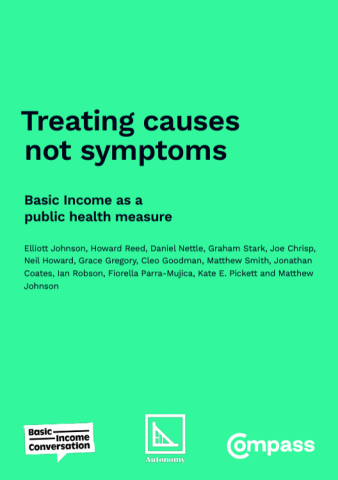A basic income scheme could save the NHS tens of billions of pounds, according to landmark new research.
A report from the universities of Northumbria, York, Bath and Strathclyde, alongside the thinks tanks Compass and Autonomy, has revealed a basic income scheme totalling around £75 a week (£3,900 a year) could have a spate of public health benefits.
These include:
- Around 125,000 to one million cases of depressive disorders prevented or delayed
- Around 120,000 to one million cases of major physical health symptoms prevented or delayed
- Around 130,000 to 655,000 quality-adjusted life years gained, with a value of between £3.9bn and £19.7bn
- NHS and social care savings between £125m and £1bn for 2023 – this is based on depressive disorders alone and assuming 50% of cases are diagnosed and treated

The research was funded by the National Institute for Health and Care Research and used economic and health modelling as well as a number of public opinion surveys and community consultations to collate the evidence.
“As a GP, I increasingly find that my patients are in financially precarious positions, regardless of whether they are in work or on benefits, and this has a clear impact on their physical and mental health,” said Dr Jonathan Coates, one of the report’s authors.
“Basic Income represents an opportunity to follow in the footsteps of previous bold interventions to address the causes, not the symptoms, of illness.”
The report, which is entitled Treating causes not symptoms, was launched at an event at Northumbria University.
“These first indications of public health impact are debate shifting, while evidence on British public opinion present clear pathways to funding through wealth, carbon and corporation tax increases,” added the project’s lead, Matthew Johnson.
“This should encourage administrations, such as in Wales and Greater Manchester, which have expressed support for policies like this.”
The report also outlined a number of potential economic benefits too, including reducing child poverty to the lowest point since comparable records began; working age poverty down by 29-75% depending on the scheme; and inequality down by 55% to the lowest globally under the most ambitious initiative.
Image credit: iStock



















